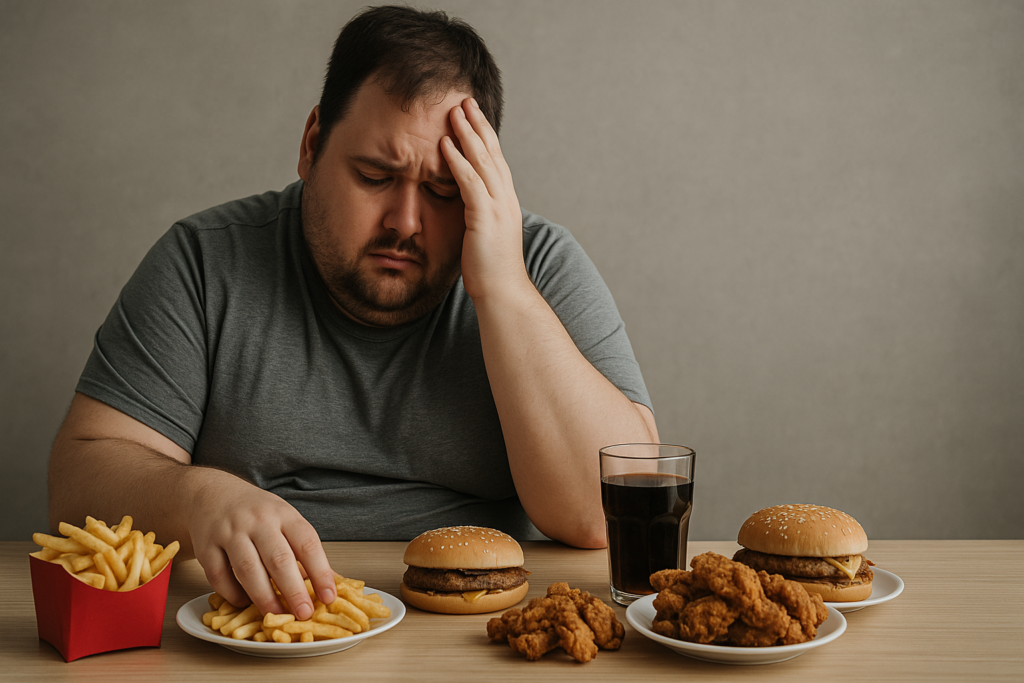
“I just love food too much.”
I’ve heard it a thousand times, and it grates on me every time.
First off, if you’re overweight or unhealthy, no s***, Sherlock—it’s obvious you have a strong attachment to food. But what do you really mean by “love?”
When someone says they love food, I actually think one (or more) of several things:
1. You don’t love food; you lust after it or are in an abusive relationship with it.
If you truly loved food, you would respect it. You would treat it well. You would savor it, choose quality ingredients, and be mindful while eating. Overeating and shoveling it down mindlessly isn’t love; it’s closer to lust—satisfying a raw, animalistic craving like chasing pornography or a quick fix. Alternatively, it could be an abusive relationship, where food hurts you more than it helps you, and yet you keep going back to it.
2. You don’t love food; you may hate yourself.
When food becomes the coping mechanism for loneliness, sadness, depression, or insecurity, it’s not love. It’s self-harm disguised as comfort. How you eat — the speed, quantity, and quality—says more about your relationship with yourself than with food. If you loved yourself, you would treat your body with greater care and respect.
3. You don’t love food; you’re addicted to it.
This isn’t about love—it’s about “addiction.” Certain foods (mainly highly processed ones) are chemically engineered to hijack your brain’s reward system. They light up your dopamine pathways just like drugs do. If you truly loved food, you’d honor it. Addiction isn’t love—it’s slavery.
4. You don’t love food; you love the feeling it gives you.
It’s not really about the food itself. It’s about the emotional high: comfort, escape, nostalgia, reward. You’re chasing an emotional state. If it were about loving food, you would care about the taste, the quality, the experience, not just the quick rush it gives you.
5. You don’t love food; you confuse love with indulgence.
We’ve blurred the line between honoring food and overindulging in it. In reality, true love respects boundaries. It appreciates without abuse. Like a healthy relationship with a person, a healthy relationship with food involves enjoying it, not exploiting it.
6. You don’t love food; you disrespect it.
Real love would mean honoring food: its origins, preparation, and role in nourishing your body and soul. When you mindlessly overconsume cheap, processed junk, you aren’t showing love—you’re showing disregard for the food, for your body, and for the act of eating itself.
Bottom line:
We throw around the word love too casually, especially regarding food.
But real love isn’t reckless. It’s not mindless. And it certainly isn’t destructive.
If you think loving food means eating without boundaries, you miss the point entirely.
If you truly loved food, it would show in your choices, habits, health, and relationship with your body.
© 2026 28:Tenn Fitness ALL RIGHTS RESERVED
Website Proudly Designed by CGC